Review
- Blog (or RSS)
- Social Media (which?)
- Podcast
- Email/Newsletter
- In-Person Discussion groups
- Carrier Pigeon
- Clutter is costly
- Optimization is important
- Intentionality is satisfying
- Serve something you deeply value
- Be the best way to use technology to serve this value
- Have a role in your life that is constrained with a standard operating procedure that specifies how you use it
- Prioritize demanding activity over passive consumption
- Use skills to produce valuable things in the physical world
- Seek activities that require real-world, structured social interactions
- Anabaptism - Anabatism, Mennonites, and faith from those perspectives (RSS Feed)
- Digital Minimalism - intentionality around use of tech (RSS Feed)
- Games - a broad category for card games, board games, role-playing games, party games, live action games, and video games (RSS Feed)
- Humor - satire, comics, etc. (RSS feed)
- Ideas - food for thought, strategy, politics, philosophy, theology, psychology, etc. (RSS feed)
- Resilience - information/cybersecurity, sustainability, emotional & psychological resilience, posts from my Newsletter/Podcast (RSS feed)
- Review - year-in-review, looks back, but also comments on books, tools, video, music, events, etc. (RSS feed)
- Soccer - maybe I should just make this “sports”, but I really only share about Soccer (core teams: Indy Eleven, US Women’s & Mens’s national teams, Chelsea FC) (RSS feed)
- No Time to Spare: Thinking About What Matters - Ursula K. Le Guin - This year cemented Le Guin as my favorite author, and this collection of blog posts demonstrates how much her talent can shine through even in such a simple form
- The Cross and the Lynching Tree - James H. Cone - Cone explores the parallels between them, why they were obvious to oppressed people, and why white theologians ignored those topics
- Upside-Down Kingdom, The: Updated Edition - Donald B Kraybill - if you’re frustrated that many modern Christians don’t seem very Christlike, you may find this Anabaptist perspective refreshing
- The Undoing Project: A Friendship That Changed Our Minds - Michael Lewis - a biography and history of some of the pioneers of Behavioral Economics
- You Need a Budget: The Proven System for Breaking the Paycheck-to-Paycheck Cycle, Getting Out of Debt, and Living the Life You Want - Jesse Mecham - budgeting that’s not about shaming, but about making sure you are mindful about putting your money where your values are
- Religion and Empire: People, Power, and the Life of the Spirit (Facets) - Richard A. Horsley - not a fully coherent work, but nevertheless a collection of insightful essays, particularly the one examining how secular religious holidays are molded to support empire
- The Fifth Season (The Broken Earth) - N. K. Jemisin - great speculative fiction
- The Obelisk Gate (The Broken Earth) - N. K. Jemisin - book 2 and still really liking it
- The Lathe of Heaven - Ursula K. Le Guin - what if you had the power to change the world with a dream?
- Changing Planes - Ursula K. Le Guin - delightful stories of fantasy cultures from someone who’s learned to visit other realms of existence
- To Kill a Mockingbird, 50th Anniversary Edition - Harper Lee - you probably know this one, already
- Embassytown - China Miéville - philosophical speculative fiction
- Scythe (Arc of a Scythe) - Neal Shusterman - YA dystopian, with lots of fodder for great philosophical discussions
- The Last Unicorn The Lost Journey - Peter S. Beagle - I’m not familiar with the common version of this work, but this new edition of the original draft was very good
- The Gruffalo - Julia Donaldson - in this children’s picture book, the trickster is a mouse that avoids being eaten by all the predators
- The Last One - Alexandra Oliva - a suspenseful book that makes skillful use of dramatic irony
- A Coffin for Dimitrios - Eric Ambler - a classic crime novel with many points for consideration
- Little House in the Big Woods - Laura Ingalls Wilder - the start of the classic series
- Brief Cases (Dresden Files) - Jim Butcher - This collection from the Dresdenverse has some fun vignettes, especially from the bigfoot “River Shoulders”
- Glass Houses: A Novel (Chief Inspector Gamache Novel) - Louise Penny - This was a fun mystery, made better by the audiobook narrator we heard (didn’t require prior knowledge of the series)
- Uproooted - Naomi Novik - I had trouble rating this one, as it vacillated anywhere from 3 to 5 stars
Quick Poll: Where would you prefer I discuss what I’m learning, considering, sharing?
“If I were wrong, what would I see?”
Great question from Margaret Heffernan on the Knowledge Project.
I also like the distinction between “power as orchestration” and “power as domination”. Lots of good items on this episode.
This episode of the Knowledge Project has even more great parenting and development insights than the last one I shared.
Excellent episode of the Knowledge Project: Peaceful Parenting. I’m not a parent and I still got a ton out of it.
Digital Minimalism: Reference and Review
Digital Minimalism: Choosing a Focused Life in a Noisy World by Cal Newport ⭐️⭐️⭐️⭐️
(Note: I wrote about my own experience with Digital Declutter here.)
Premise
You’ve probably already heard: billions of dollars are spent on psychology and technology to claim as much of your attention as possible, to sell as much advertisement possible. The addictiveness of sites, apps, and phones is not an accident, but rather a result carefully engineered to be just so.
In addition, “darker emotions attract more eyeballs than positive and constructive thoughts”, so we are pushed towards outrage, anxiety, and despair.
Various attempts have been made to lessen the negative side effects and addictive properties of modern attention-economy technologies, but they’ve largely been unsustainable.
What to do? Newport Recommends Digital Minimalism.
Manifesto
Digital Minimalism - A philosophy of technology use in which you focus your online time on a small number of carefully selected and optimized activities that strongly support the things you value, and then happily miss out on everything else.
Digital Minimalism includes avoiding “low-value activities that can clutter up [our] time and attention and end up hurting more than they help.” It also means asking ourselves “is this the best way to use technology to support this value?” The law of diminishing returns also applies, here.
The Principles
Summary quote from this section:
The sugar high of convenience is fleeting and the sting of missing out dulls rapidly, but the meaningful glow that comes from taking charge of what claims your time and attention is something that persists.
Digital Declutter Program
Newport recommends an intentional process to reassess your needs and values.
Put aside a thirty-day period during which you will take a break from optional technologies in your life. During this thirty-day break, explore and rediscover activities and behaviors that you find satisfying and meaningful. At the end of the break, reintroduce optional technologies into your life, starting from a blank slate. For each technology you reintroduce, determine what value it serves in your life and how specifically you will use it so as to maximize this value.
Taking the Break:
Evaluating “optional” can be grey, but Newport gives this guideline:
consider the technology optional unless its temporary removal would harm or significantly disrupt the daily operation of your professional or personal life.
Newport also warns us to not confuse “convenient” with “critical”, when analyzing our needs during this period.
Two methods to “take a break” are bans and operating procedures. A ban is simply not using that site, tech, app, etc. during the period. Operating procedures entail using it under certain rules. For example, many test participants in the program moved many tasks to their laptop/desktop that they had often completed on their phones, or checked certain apps/sites only once a week, or during a certain window, or in a certain place.
In summary:
In the end, you’re left with a list of banned technologies along with relevant operating procedures. Write this down and put it somewhere where you’ll see it every day.
Reintroducing Technologies
To be reintroduced, a technology must:
For the last item, this means asking “How am I going to use this technology…to maximize its value and minimize its harms?”
Practices
One of the side effects of the engineered attention economy is that we’ve become accustomed to distract ourselves at the slightest moment of boredom or uncomfortable introspection. In addition, cutting out mindless swiping and browsing will introduce a lot of free time. If we don’t have a plan to proactively use our freed time, our Digital Minimalism practice is likely to fail.
Thus, Newport introduces some possible practices to help us positively spend some time with our own thoughts, reclaim our free time as quality leisure, and further join the “Attention Resistance.”
During your tech break and again in your reintroduction, see which of these would be good to include in your habits.
Practice Area: Spend Time Alone
One of the challenges of the attention economy is that we are frequently stuck in:
Solitude Deprivation: A state in which you spend close to zero time alone with your own thoughts and free from input from other minds
Time with our own thoughts is important, in short, for mindfulness. It’s important for the ability to consider problems, to examine & regulate emotions, reflect on values, and more.
Newport refers to the mounting evidence regarding how the attention-economy is drastically driving up anxiety levels. As I mentioned at the beginning, we know our negative emotions are targeted for reaction, but on top of that we are also repeatedly presented with “curated” versions of others’ selves, and finally, the systems are designed for us to continually seek the repeated micro-approvals of others. The attention economy is engineered in a way that drives anxiety.
Thus, the following practices help us have time without input from “other minds”, to help restore some control, attention, and mindfulness to our lives.
Through these practices, Newport recommends:
Conversation Centric Communication: Conversation is the only form of interaction that in some sense counts toward maintaining a relationship….Anything textual or non-interactive—basically, all social media, email, text, and instant messaging—doesn’t count as conversation and should instead be categorized as mere connection. In this philosophy, connection is downgraded to a logistical role. This form of interaction now has two goals: to help set up and arrange conversation, or to efficiently transfer practical information…. Connection is no longer an alternative to conversation; it’s instead its supporter.
On to the practices:
Practice: Leave Your Phone at Home
It may feel impossible, but this is a very recent feeling. If you’re concerned about emergencies, consider leaving it off, or in the glovebox of your car, for example. (Again, this is implementing operating procedures.)
Practice: Take Long Walks
By yourself. Without your phone.
Practice: Write Letters to Yourself
AKA write in notebooks. Take notes, journal, brainstorm, plan.
Practice: Don’t Click “Like”
“No reacts plz”, we might say. This goes back to the micro-approvals and anxiety I mentioned above, as they drive the slot-machine behavior of social media sites. If you must react, share a comment. Or your own writing. Or even better, have a conversation with the person. “Adopt the baseline rule that you’ll no longer use social media as a tool for low-quality relationship nudges.”
Practice: Consolidate Texting
Keep your phone in Do Not Disturb and only check according to an operating procedure. Setup your DND to allow calls through from critical contacts.
Practice: Hold Conversation Office Hours
Pick a time when you are open for free conversation. Maybe it’s your commute. Maybe it’s literally open office hours. Maybe it’s a recurring walk. Whatever it is, offer this time as an opportunity for conversations.
Practice Area: Reclaim Leisure
All this freed time can lead to existential anxiety or produce negative behaviors (mindless consumption, alcohol/drug abuse, etc.) to fill the void. Newport claims giving more thought, attention, and effort to our leisure will make it more fulfilling and restorative, and help us keep on the Digital Minimalism path.
Here are the three principles, then, of leisure:
“The value of the pursuit is often proportional to the energy invested.”
Practice: Fix Or Build Something Every Week
Per principle #2, this should be analog. Newport recommends trying to learn and apply a skill each week over Digital Declutter period.
Practice: Schedule Your Low-Quality Leisure
Per your operating procedures, you should decide when, how much, how, etc. For example, maybe you only stream TV with family and friends, and only for X hours on the weekends. Maybe you only check in on Facebook events, groups, and family pictures for an hour on the weekends. In Newport’s findings, “the vast majority of regular social media users can receive the vast majority of the value these services provide their life in as little as twenty to forty minutes of use per week”, as opposed to the 3+ hours that the average person spends daily on their smartphones.
Practice: Join Something
Join a club, meetup, organization, etc. Or start your own!
Practice: Follow Leisure Plans
This may sound backwards, but actually planning your leisure may give you more opportunities to do it, by prioritizing it in your schedule.
Newport recommends a seasonal plan and weekly planning.
A good seasonal plan contains two different types of items: objectives and habits that you intend to honor in the upcoming season. The objectives describe specific goals you hope to accomplish, with accompanying strategies for how you will accomplish them. The habits describe behavior rules you hope to stick with throughout the season.
For each of the objectives in the seasonal plan, figure out what actions you can do during the week to make progress on these objectives, and then, crucially, schedule exactly when you’ll do these things.
Practice Area: Join the Attention Resistance
At this point in history, “extracting eyeball minutes, the key resource for companies like Google and Facebook, has become significantly more lucrative than extracting oil.”
Practice: Delete Social media from Your Phone
Once you have your operating procedures around use, you probably don’t need it there, anyway.
Practice: Turn Your Devices Into Single-Purpose Computers
This is about focus and not multi-tasking. Of course computers are general purpose machines, but “the power of a general-purpose computer is in the total number of things it enables the user to do, not the total number of things it enables the user to do simultaneously.”
Practice: Use Social Media Like a Professional
People who work with Social Media for their job typically have operating procedures to be effective.
Have a careful plan for how you use the different platforms, with the goal of “maximizing good information and cutting out the waste.”
For example, fix the signal-to-noise ratio by being careful about what and who you follow.
Practice: Embrace Slow Media
Slow Media or Slow News is like the Slow Food or Slow Church movement. Embrace the patient, high-quality, well-considered sources and conversations.
Avoid junk and reactivity. Avoid “Breaking News”, which is almost always low-quality, error-prone, and often emotionally manipulative.
Seek opposing viewpoints. Follow feeds from good writers. Save/bunch stories to read once a week.
Practice: Dumb Down Your Smartphone
Consider a dumbphone, no phone, or something like the Light Phone or the Punkt Phone.
Conclusion
I liked this book and look forward to implementing my break and examination during Lent. Want to discuss the book? Message me and let’s have a conversation!
First change I’m making due to Digital Minimalism: going through my many Slack instances this morning and leaving all the channels that don’t have needed info for me, and are instead just chatty rooms. #DigitalMinimalism
Start with Why micro notes/review

“Solitude Deprivation: A state in which you spend close to zero time alone with your own thoughts and free from input from other minds.”
from Digital Minimalism: Choosing a Focused Life in a Noisy World
I don’t mind stealing bread
from the mouths of decadence.
But I can’t feed on the powerless
when my cup’s already overfilled.
Introducing Blog Categories and Specific Feeds!
Good news! Per this announcement, Micro.blog now supports categories, and therefore, so does this blog.
Categories allow you to view or subscribe to a selection of blog posts related to a certain theme. My collections could evolve over time, but you can always see the live list at the top of my archive page. I created the following breakdown, which most of my posts will fit into:
Questions? Comments?
Clever idea for a fountain pen the cap is scale ruler. #Kickstarter 🖋
From Distant Shores: we're published!
Strange invaders land on the shores of a peninsula known for its independence; rumors about their true purpose are numerous and varied. Two old friends reunite after more than a decade, brought together by a young man looking to advance himself in the world.
Our book is a consolidated collection of Actual Play fiction for a Burning Wheel campaign that ran for more than sixty sessions over the course of two years.
Eloy Cintron was GM. Neil Goodrich (Alistair), Jose Lozada (Aedan), and I (Gyles) were players. Along the way, Neil Goodrich wrote actual play reports as stylized fiction, and the rest of the players contributed some content, as well.
Now, Neil has bound that content together as a beautiful book. Totaling 608 pages, it’s even larger than Burning Wheel itself. ![mp-photo-alt[]=mp-photo-alt[]=mp-photo-alt[]=mp-photo-alt[]=](https://blog.grotenhuis.info/uploads/2019/dee4bd526f.jpg)
Inside, you’ll find a map of the Braemar Penninsula (courtesy of John Love) 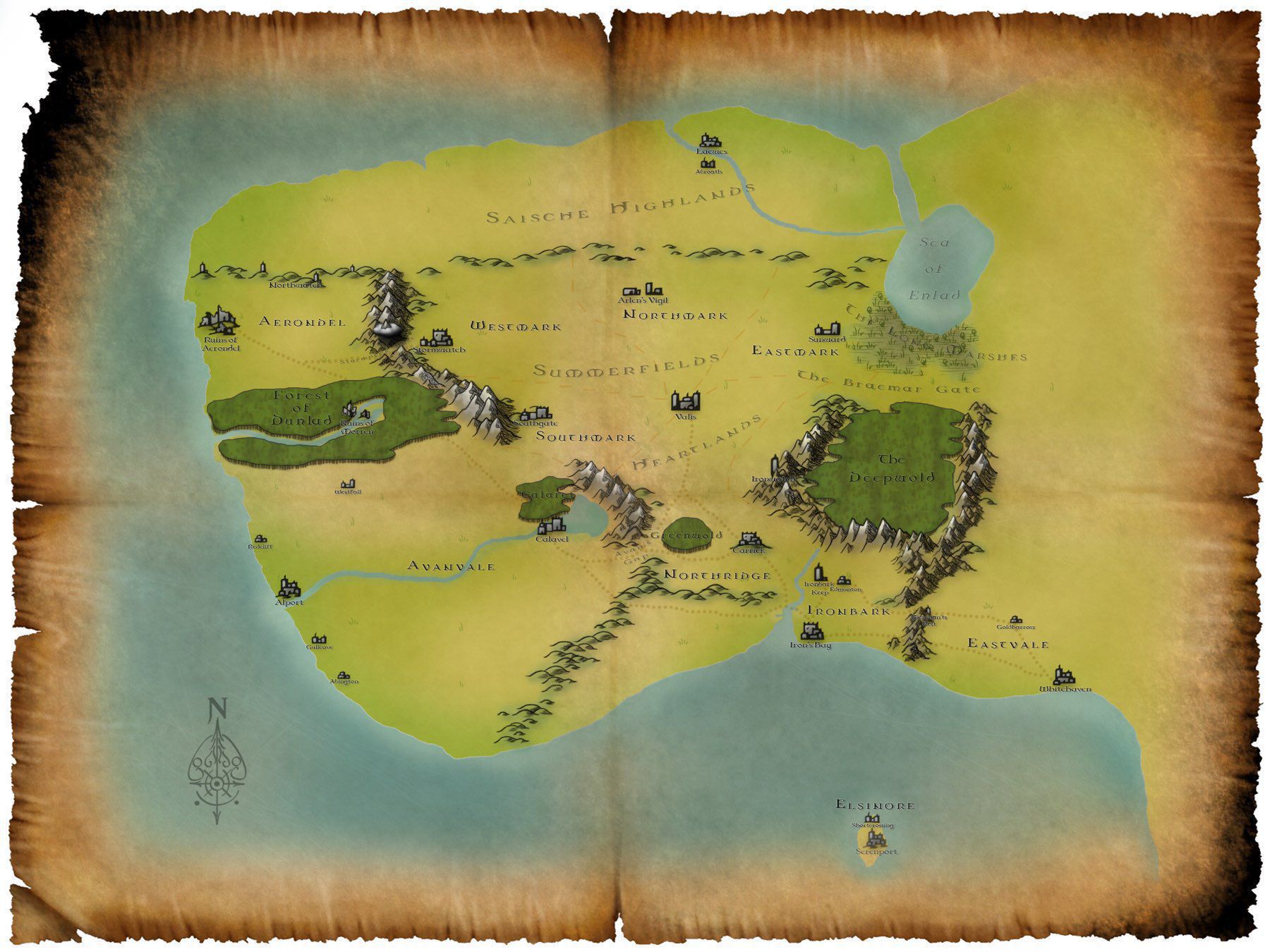
Also, a commissioned picture of the cast (from Marcin S),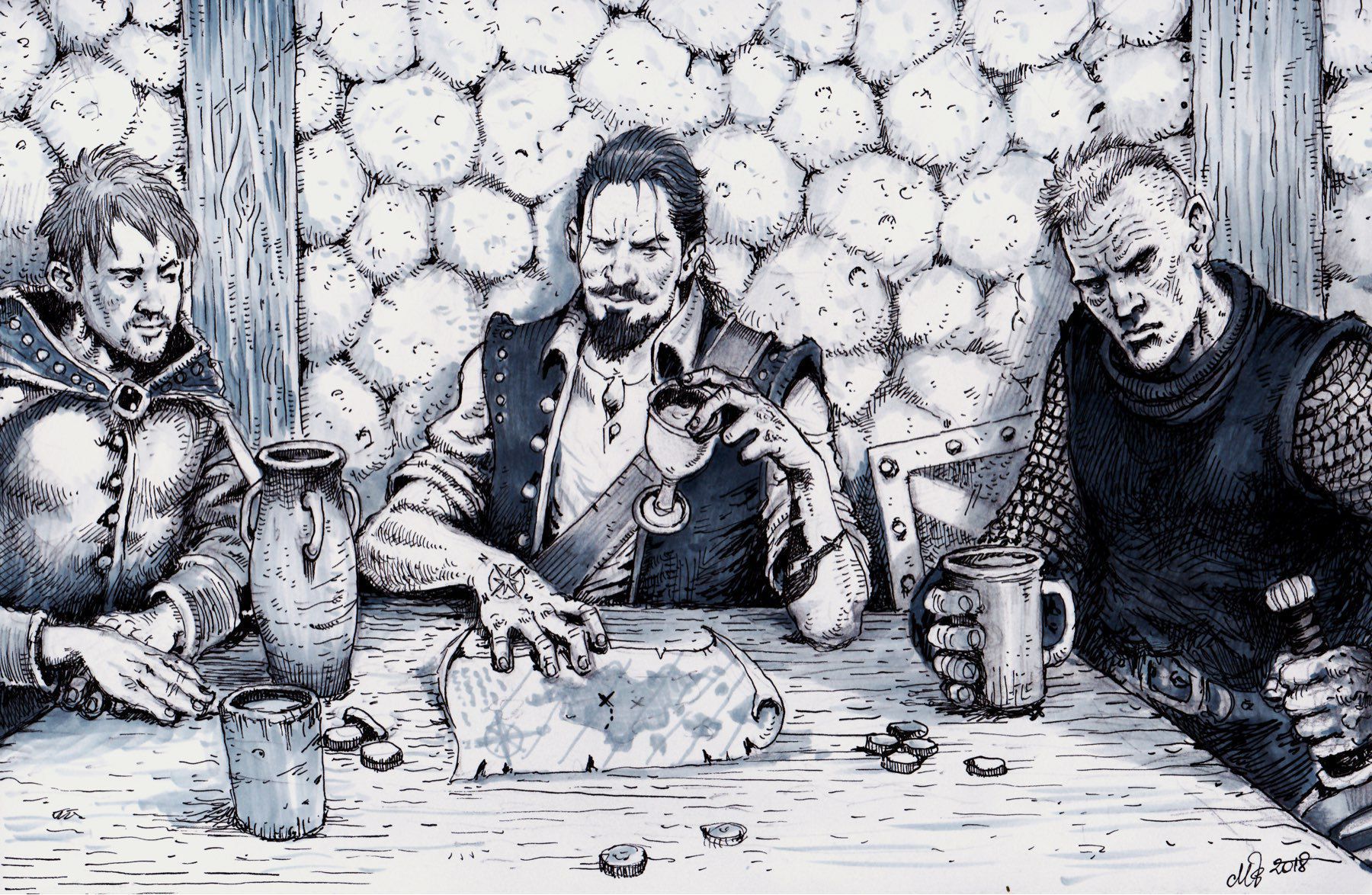
It even includes stylized starting and ending character descriptions & sheets.
As we start to go back through the fiction, it’s amazing to see how much foreshadowing there is about how the situation and the characters will turn out.
Because it was my character, I’ve included pictures of how Gyles started out. How he ended was an entirely different picture…. 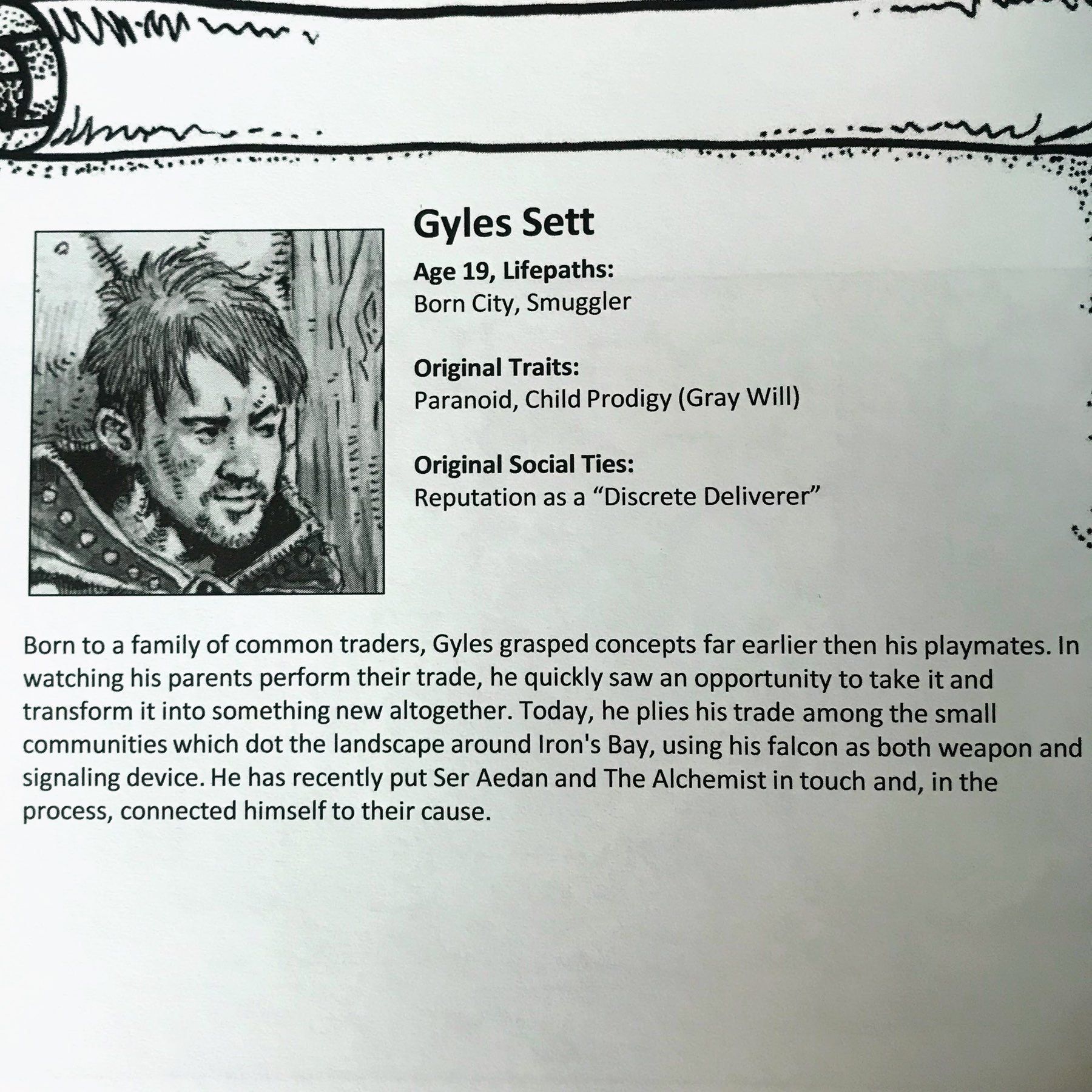
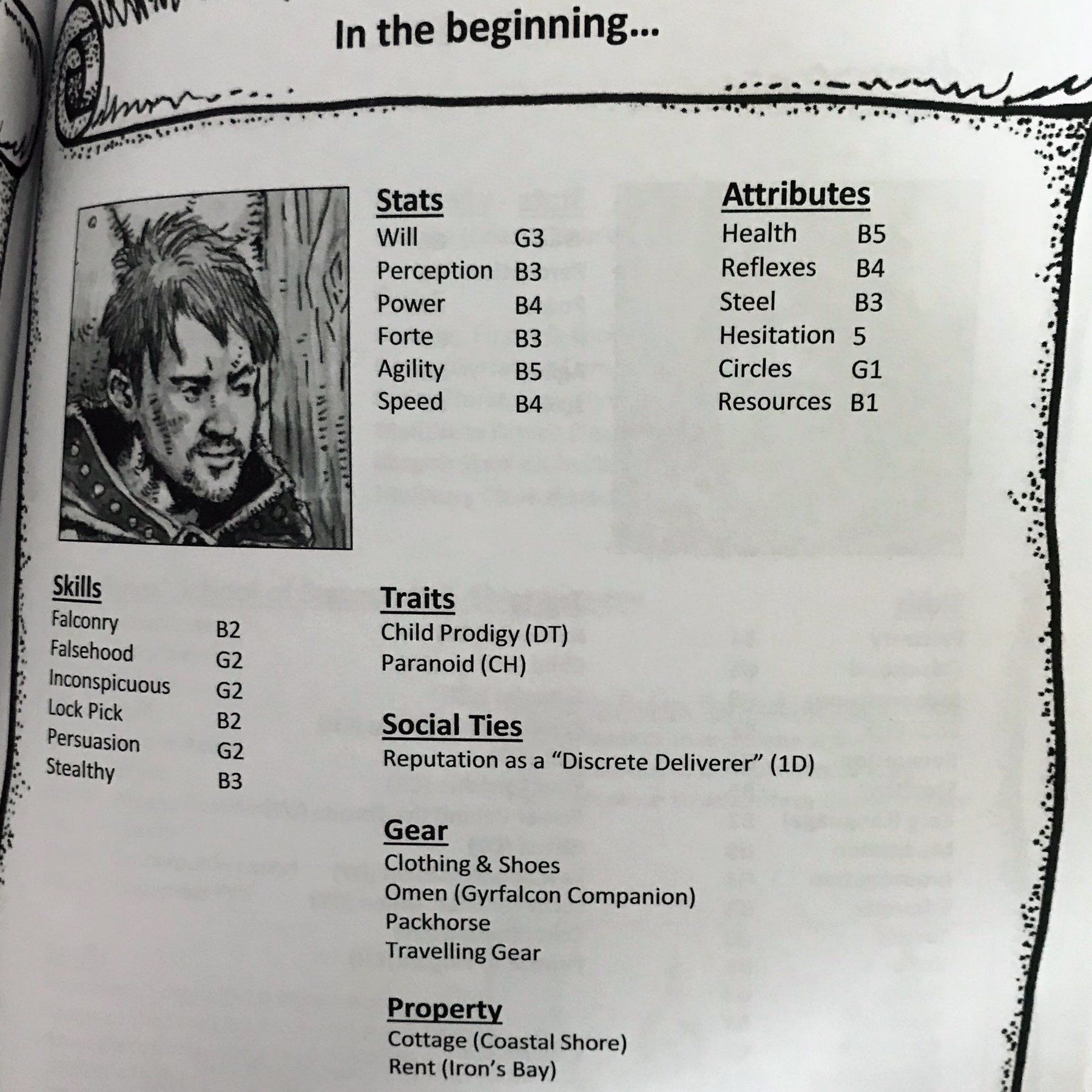
I am really excited about this book. Ask me anything!
TWSBI Go is great. Overtaken Lamy Safari as top-value fountain pen 🖋
Travelers is the best show.
Reminder: don’t eat at Patachou restaurants. First, we had the frivolous lawsuit against Crust, now we have this Grade A bullshit from Patachou.
Let’s have an Epiphany
“For, look, darkness covers the earth
and deep darkness covers the nations,
but the Lord shines on you;
his splendor appears over you.”
Epiphany
The twelve days of Christmas have concluded, and we are now in Epiphany. This is when Christians celebrate the arrival of the Magi who came to witness the newborn Jesus. In some traditions, we also celebrate his baptism, or even Jesus’s miracles and ministry.
Epiphany is a “manifestation”. As the verse above alludes to, and as Pastor Shannon says, it’s the “Light breaking in.”
In these dark times, where are you seeing the light breaking in?
A Theme for January
In Common Prayer, the suggested theme for January is “Shared Economics.” The economics of Caesar and Empire are harmful to people and the world, but the Spirit repeatedly calls people to live differently. The prophets and Jesus had a lot to say about how we handle economics, yet it’s a topic that many Christians avoid engaging deeply. In January, we are invited to investigate alternatives and to perform holy experiments.
This January, I’ll be reading and writing about one of the suggested books: God’s Economy: Redefining the Health and Wealth Gospel.
Want to join me? Let me know!
2018 Book Review
Goodreads records the entirety of my 2018 reading, here, but I’d like to specifically offer to you the books that I enjoyed the most.
I didn’t read any books this year that I gave 5 stars (these are rare for me), but I read many that were very good (4-stars). I’d be delighted to discuss any of them!
Nonfiction
Fiction
Related: other 2018 Review Posts:
2018 was full of challenges for me, and likely for you. Were we able to grow from them? Will we in 2019?
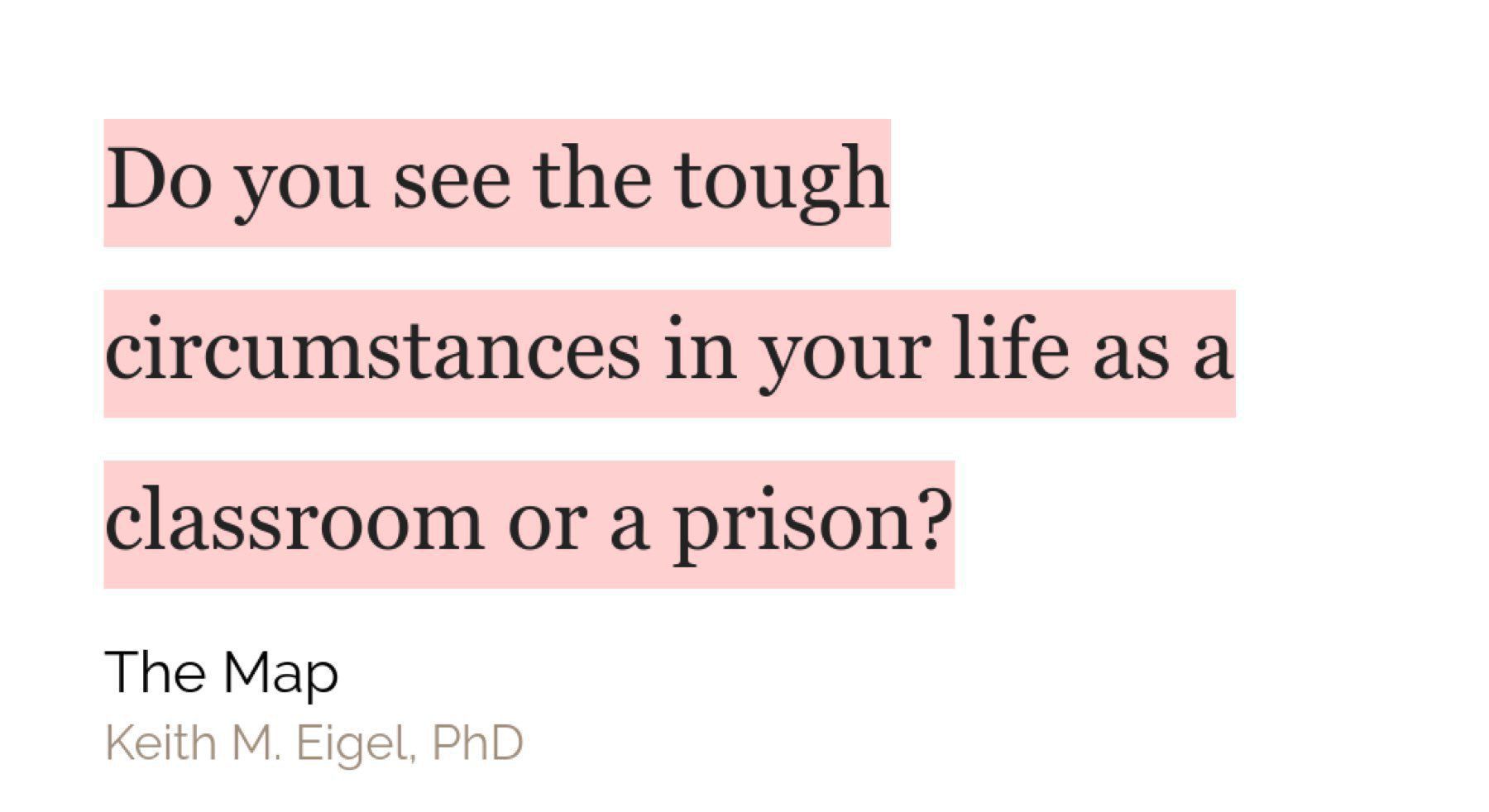
“Our American Christians are too busy saving the souls of white Christians from burning in hellfire to save the lives of black ones from present burning in fires kindled by white Christians.”
Ida B. Wells quoted in The Cross and the Lynching Tree by James H. Cone